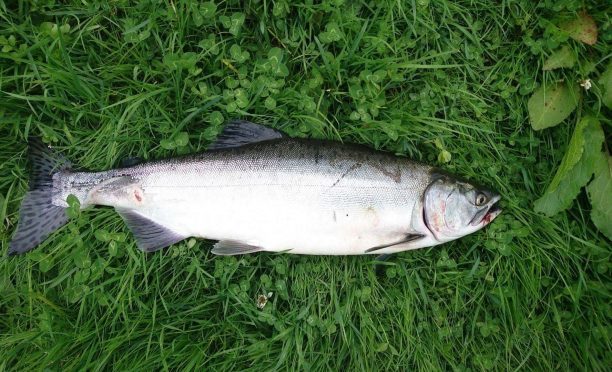North-east anglers have been urged to look out for alien invaders after a pair of Pacific pink salmon were reeled in on the River Dee.
The Dee District Salmon Fishery Board has asked fishermen along the 87-mile river, from the Cairngorms to Aberdeen, to be wary of the non-native species taking their bait.
The board has appealed for anybody who hooks the fish, which naturally live in coastal waters around North America and eastern Asia, to keep it alive and call it in for collection, so that experts can test it for any diseases.
The news emerged after a brace of Pacific pink salmon were caught by anglers in the highlands earlier this month.
Fisheries Management Scotland confirmed, in a statement, they believe the fish have “strayed” from rivers in northern Norway and Russia.
They added: “In recent weeks, anglers in Scotland (Rivers Ness, Dee and Helmsdale) have reported several captures of fresh run, non-native Pacific pink salmon.
“Whilst it is theoretically possible that these non-native species could establish themselves in Scottish rivers, the higher water temperatures make this unlikely.
“Whilst the risks are not known, in terms of their interaction with Atlantic salmon and other native Scottish fish, they are unlikely to have a positive impact.”
The Dee is one of Scotland’s most popular salmon rivers alongside the Spey, Tay and Tweed.
Earlier this year, when television presenter Alexander Armstrong officially launched the new season in Banchory, the River Dee Trust revealed the local industry generates around £15million annually in revenue, and supports an estimated 500 rural jobs.
Deeside resident and biologist Professor Anthony Hawkins, the former director of Aberdeen’s marine laboratory, said: “I suspect these fish being caught in UK rivers may have come from Russian, Norwegian or Icelandic Rivers.
“The Russians introduced many of them into the rivers of the Barents Sea about 50 years ago as part of a major programme of introduction.
“They have now spread from Russian waters into a few northern Norwegian and Icelandic Rivers.
“It is very unlikely the fish being caught here have come all the way from Alaska, Canada, or Japan, which is where they live naturally.
“What would be worrying is if these fish have been deliberately introduced into Scottish or English rivers – perhaps by planting pink salmon eggs.”
